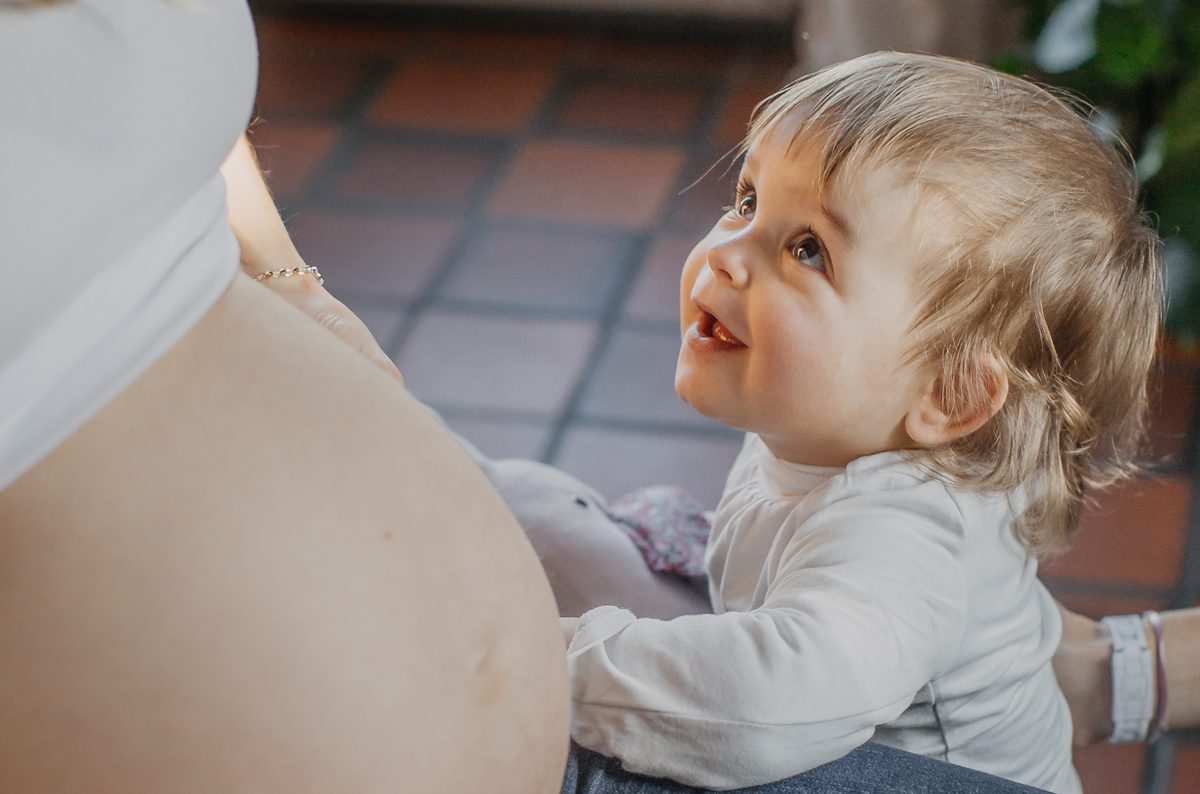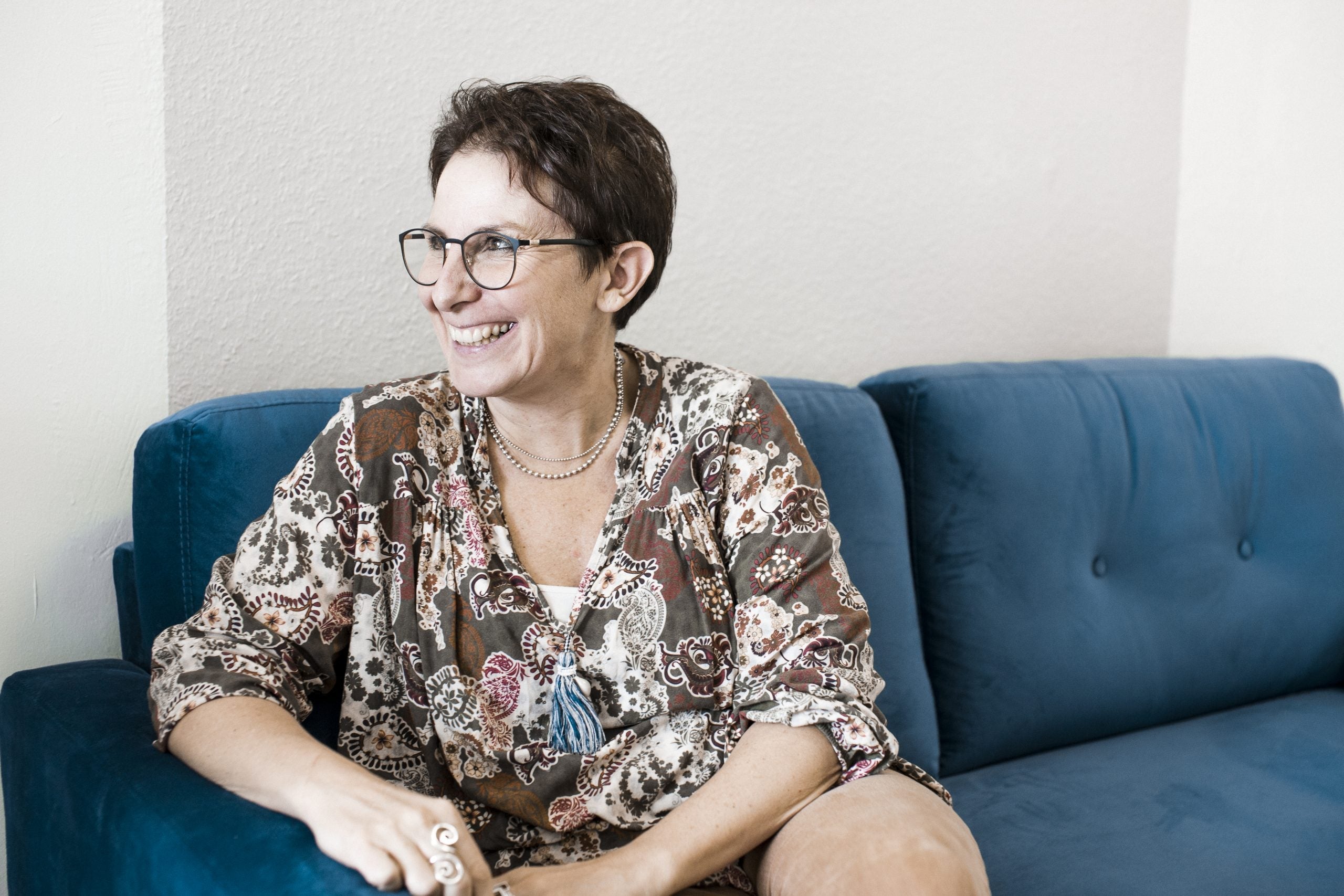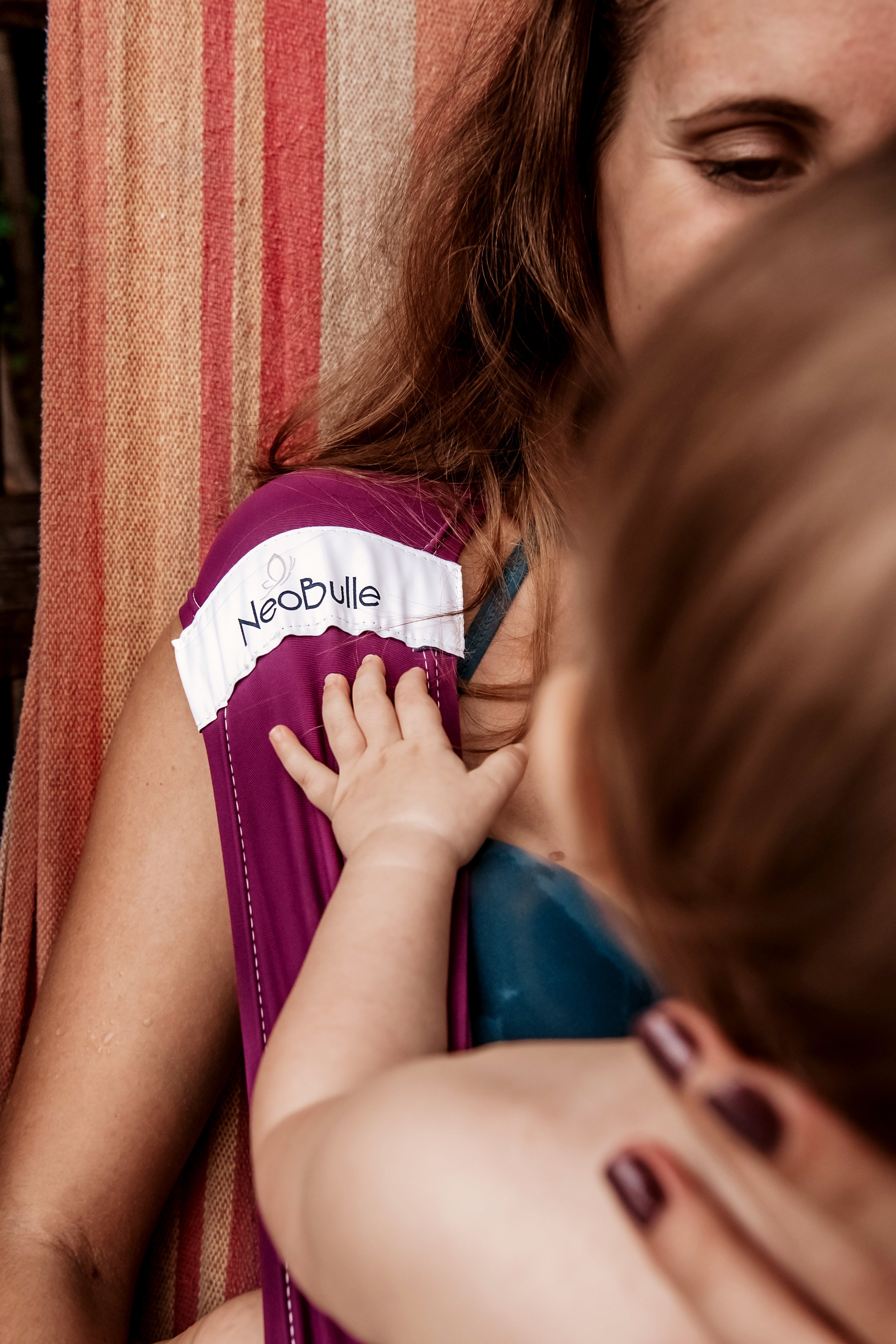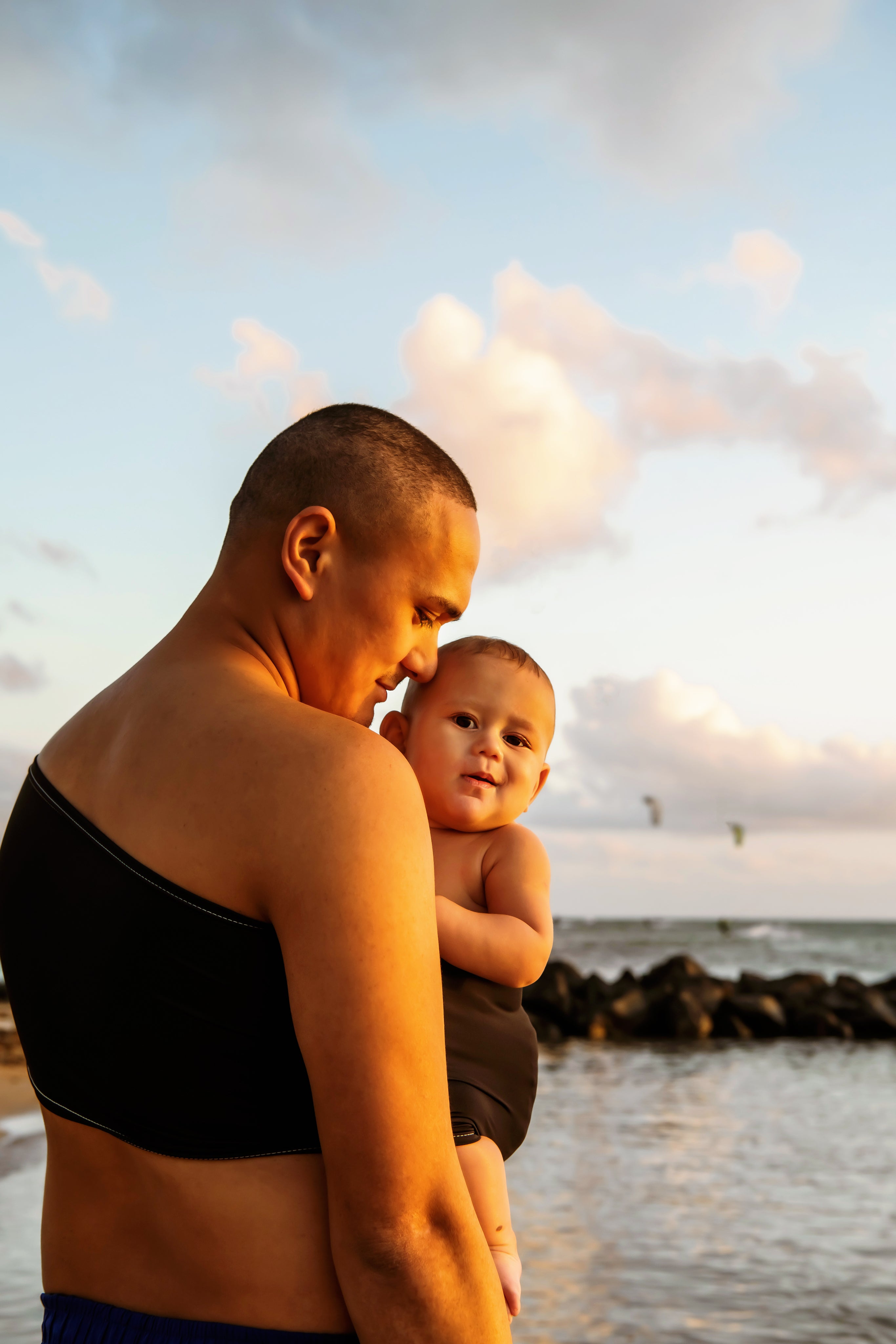
Which skincare products to choose during pregnancy?
Natural and organic products, essential during pregnancy Nature offers an infinite array of virtues for our skin and our body. But what is a natural product? It is a product obtained from renewable resources: plants, clays, beeswax, etc. Unlike synthetic ingredients derived from petroleum or coal, which can be toxic to humans and the environment, natural products are living products that restore our body's natural balance. As for the label organic, it guarantees the non-use of synthetic pesticides, which pose a particularly high toxic risk during pregnancy and for babies. The presence of labels is often a mark of quality. Claire Morlot's advice, Scientific Manager at Neobulle: “Favor products containing 100% ingredients of natural origin with the highest possible organic content, close to 100%!” Simplicity, a guarantee of safety The list of components largely reveals the quality of a cosmetic product. A long list increases the risk of intolerance or allergy. Leading the list of ingredients to avoid are preservatives such as parabens, phenoxyethanol, triclosan, and methylisothiazolinone or methylchloroisothiazolinone (MIT/MCIT). But there are countless others. Claire Morlot's advice “Choose your care products with as few ingredients as possible.” A range of natural products for pregnancy Can essential oils be used during pregnancy? This is a question worth asking. On one hand, some essential oils are not recommended, especially during the first trimester. While others are permitted. Here, everything depends on the professionalism and expertise of the brands.For this reason, it is essential to carefully read the recommendations before purchasing a care product. It usually indicates from which stage of pregnancy the product can be used. Pregnant women, breastfeeding women, babies under 3 months, children under 3 years old… At Neobulle, everything is carefully dosed to be suitable for babies or the whole family, and you can easily identify who the product is for thanks to the icons present on the bottles to guide you. Claire Morlot's advice “Check that the information about the target audience is clearly visible, it guarantees the brand's credibility.” 5 tips for proper use of cosmetics To avoid any problems for your delicate skin and to better protect baby, some precautions are necessary. Here are Claire Morlot's recommendations for peace of mind: Follow the instructions and specific precautions for use Respect the expiration date or PAO. 6M, for example, means that the product can be used for a maximum of 6 months after opening. Close your cosmetic product tightly after use. Store your product in a cool place, away from light. If your skin is rather sensitive, perform a patch test on the inside of your elbow to check for any reaction. Neobulle products: high standards of quality And it's completely natural... Neobulle has been supporting expectant mothers and families for 15 years by offering natural care products. Neobulle care products are validated by independent toxicologists and are subject to a safety assessment specific to the target audience. We have an internal scientific division led by Claire Morlot, a cosmetologist, and we also base our work on: recommendations from the European Council on the use of plants in cosmetics professional recommendations from the IFRA recommendations from the ANSM All of which are evaluated and validated by toxicologists and a doctor.

D-Day: Clever tips for a peaceful childbirth
The big day is approaching, little by little. Here are some tips to keep in mind for the big day, the day of the great meeting with baby. For some moms, labor progresses quickly, for others it takes longer, but in any case, trust in yourself and baby is key. In a (Neo)bubble Create a calm and warm atmosphere where you will feel safe. Soft lighting, intimate ambiance, and gentle music are a good starting point to help steer your thoughts positively and thus reduce stress. By imagining your little wonder soon in your arms and thinking of the joy awaiting you rather than focusing on the pains... It’s not always possible, but whenever it is, take advantage of it. Relax and move your body Moving and walking between contractions will help mobilize your pelvis and speed up the process. Don’t hesitate to move as you feel. Sitting, standing, squatting, hanging, on all fours, or leaning forward... only you will know what is best for baby and you, with the help of the midwife. Whatever your position, the dad, sister, mom, or the person accompanying you can apply pressure on your sacrum, that small bone at the base of the spine. They can also massage your shoulders or neck to help you relax. The benefits of massages To allow your body to gradually let baby descend, the pelvis needs to change. Massages will provide essential flexibility to relax muscles and make space for the little baby who will soon be in your arms. The pleasant sensation of massages helps to focus less on the pain. These moments of calm between contractions will bring you moments of peace to refocus. Under the effect of massages, your body produces endorphins, which are responsible for the production of oxytocin, this hormone that causes contractions and helps guide baby out. Breathing and relaxing your face The muscles of the mouth and those of the perineum are closely linked. The more you clench your teeth, the more you tense up during contractions. Keep in mind to relax your jaws as much as possible to facilitate the work. Baby will move towards the exit more easily, little by little. Breathe deeply and fully. This will help refocus your thoughts on baby and the love you already feel for him. The relaxing oil for NeoBubble’s delivery Severine Martial, a nurse and founder of Neobulle, designed this oil through her contact with mothers who do not want an epidural. The idea came to her after the birth of her first of four babies. She wanted to give birth without an epidural, but since it was very long, she thought of creating a natural remedy to shorten the labor. And the oil was born... a few months after her baby! How to use it? This precious elixir, 100% organic, applied as a massage on the lower back or abdomen, allows you to stay in your bubble, better manage and reduce pain, while increasing the effectiveness of contractions. And if you cannot tolerate being touched, which can happen, it is designed to be inhaled. In this case, place the oil inside your wrists and breathe deeply. After birth Like most Neobulle products, the relaxation oil was designed as a multi-purpose care for your well-being and to accompany you in your life as a mother. You can keep this bottle with multiple benefits to use after birth. Its components with comforting virtues help better manage the arrival of the baby, especially when hormones drop and tears may flow easily.

Interview with Séverine Martial: Babywearing, breastfeeding, and parenting
Nurse and creator of support associations for moms, carrying workshops, then Néobulle, Séverine has more than one trick up her sleeve. But above all, she has a deep understanding of mothers and a passion for babies! Let's get to know each other! I am a trained nurse, born into a family of caregivers with a midwife mother. After my first child, a little girl, I breastfed for 3 months without questioning it. Then, engorgement with a fever occurred. I visited my doctor, who knew nothing about it, but I didn't realize it. He told me to stop breastfeeding and to pump my milk because I risked poisoning my baby. It was a big mistake. This marked the end of my breastfeeding because production decreased very quickly. The end of the first episode, with no regrets or questions, because during my nursing studies, breastfeeding was not discussed except to warn us that weaning could be dangerous and lead to risks of autism. Of course, those were still mistakes. However, we had learned how to prepare bottles! And then, a meeting changed everything. A mom who came to the baby swimmer class with me and was breastfeeding her 9-month-old toddler. That made me question myself. Why was I no longer breastfeeding? Why are we so poorly informed as mothers? Why are we so poorly trained as health professionals? From that moment, I immersed myself in this fascinating world. I discovered how well-designed nature is, how a harmonious life with a baby brings joy to families. I decided to act to raise awareness in maternity wards. Did you succeed in getting your message across? It was difficult. I fought for years. I created a first support association for breastfeeding called "Ref’Lait." Then a second, "Naturellement Parents," to help parents stay calm and serene with their baby and to make them feel supported by guiding them on carrying, parenting, massages, and even singing. Ref’Lait still involves about fifteen health professionals who continue to support breastfeeding mothers through consultations or visits in maternity rooms. We operate free of charge in the Loire thanks to funding from the Regional Health Agency. I am very proud of that. After support associations, did Néobulle come along? Yes, Néobulle came naturally, without ever thinking about creating a business someday. Initially, to further improve support and to leverage the craftsmanship of my region known for its weaving artisans, I developed and had physiologic carrying scarves manufactured just a few steps from my home. Then, passionate about aromatherapy, the idea of creating 100% natural, organic skincare products that are free of artificial ingredients and, most importantly, effective, came to mind. Always with the goal of better meeting the needs of babies and giving parents confidence. When did you realize that breastfeeding is important? About twenty years ago, during my nursing training, I did an internship at a retirement home. I was struck by the elderly women I cared for. As soon as the topic of babies was mentioned, they talked about their breastfeeding experiences. Regrets, satisfactions, pleasures, and unfulfilled desires… At that moment, I thought that breastfeeding a baby was something very important in a woman’s life, to the point of leaving a mark on her entire life. How would you describe parenting? It is the natural way of caring for a baby. Parenting simply means taking care of and responding to their needs. During the first few months, their needs are simple. They are only vital. Sleep, being fed, changed, washed, cared for, and carried to feel secure. And of course, a baby needs attention and love. It is important to be aware that parenting has existed forever. It has disappeared over the centuries for several reasons. In the nineteenth century, carrying and breastfeeding were associated with so-called “primitive” populations, while so-called “modern” inventions, like strollers and swings, reduced the essential proximity between a baby and their mother. The lack of time with women’s emancipation also... Exactly. Women’s emancipation naturally took more and more time away from mothers to care for their babies. Not to mention the numerous pediatric hypotheses that have contradicted each other over the years: not carrying, feeding at fixed times, not responding to cries… All these factors, combined with carrying, parenting, and nurturing, gradually disappeared. Yet these are instinctive and ancestral practices! This is the famous maternal instinct. If a mother were on a deserted island with her baby, she would take care of her baby, breastfeed without question, hold her constantly against her, and the baby would have everything it needs to be healthy and happy. But fortunately, instinct takes over! And carrying, breastfeeding, and parenting are coming back to the forefront. Can you tell us about the benefits of parenting? Yes, of course! The relationship created through parenting is just as beneficial to the mother as it is to the baby. The baby feels better and cries less, while the mother gains confidence and asserts herself in her new role, whether it's her first baby or a new little one in the family. Having the feeling of understanding your baby and responding well to their needs gives parents immense confidence and an unparalleled sense of fulfillment. It creates a virtuous circle that promotes harmonious development of the baby within their family. Then, you become a parent, and the rest is won! So, is this also beneficial for future education? The more the mother understands her baby, the more confident she is in her role as a mother. The same applies to the father. It then becomes easier to gradually set boundaries when the little "caprices" start to appear. The confidence and serenity that parenting provides are the starting points for simple and natural education. Séverine wants to emphasize one point… During the first months of the baby, it is essential to meet all their needs. Whether they ask for cuddles, want to breastfeed 10 times in a row, or desire a comforting cuddle, these are only basic needs essential to their physical, mental, and emotional development. A baby does not make their parents work or play the comedy, as some still believe. Carrying helps immensely in daily life and during moments of intense demands. It allows the mother to stay close to her baby continuously while continuing her activities. So, no frustration. Moreover, by being in contact, she secretes hormones that keep her alert and help her instinctively know what to do. This close proximity with her baby allows the mother to understand him, quickly detect his needs, and learn to anticipate them. As a result, the mother gains confidence, and the baby cries less or not at all. Should a baby not cry? The cries of the first months can be completely avoided thanks to carrying and parenting. This gives confidence to the mother and reassures the baby. The tears are a source of exhaustion and stress for the baby. He no longer sleeps properly, has less appetite, and the mother worries. Crying doesn't serve much purpose; it's the ultimate sign that we failed to recognize his needs earlier. But it's normal not to manage everything perfectly on the first try! Being a parent is learned little by little, by listening to your inner voice and not just the advice of those around you. What is your opinion on co-sleeping? This is a very controversial topic in France. It is discouraged by pediatricians in the first few months to avoid sudden infant death. On the other hand, it is a practice that has lasted through the centuries and is still practiced almost everywhere in the world. It is important to note one key point. When the baby is in the parents' room, the mother feels more at ease. She sleeps better being close to her baby. Breastfeeding hormones also help develop lighter sleep and keep alert. Recently, it has been recommended to have the baby sleep in the parents' room during the first 6 months. Regarding co-sleeping, WHO has established safety rules to follow if practiced. Thank you, Séverine, for all this valuable information!
How to relieve nausea during pregnancy?
On one hand, nausea sends a positive signal. It indicates that the baby is settling in. It is definitely there, and that is good news! But on the other hand, they can be quite unpleasant and sometimes worrying for expectant mothers. We hope to reassure you with these few tips… The ABCs of nausea For some pregnant women, nausea is very present, and for others, it is completely absent. They usually appear around the fifth week of pregnancy. Sometimes, they occur as early as the missed period. Fortunately, they are not dangerous for the baby, as long as they do not prevent you from eating. If that happens, you should see a doctor without delay. They then disappear at the end of the first trimester. It is rare, but sometimes, they can last throughout the pregnancy. There are some tricks to help alleviate them. Statistics More than two-thirds of pregnant women experience nausea. So, nothing to worry about. It’s even a good sign. Having nausea can reduce the risk of miscarriage by 50%. That said, it varies from woman to woman. Use the tips and tools that will help you stay on track, avoiding stress as much as possible and continuing to focus on the positive 😊 The Neobulle anti-nausea stick Looking on the bright side, nausea takes care of the baby. It prevents you from smoking, and discourages alcohol, coffee, or certain ingredients like eggs and meat, which can carry listeriosis or toxoplasmosis, especially if you are not yet immune. It’s an unpleasant state, but fortunately, there are solutions. Neobulle has created a remedy to support you and help contain nausea: the "Emergency stick, stomach ache". It has been studied to calm nausea. Here are some words from Séverine MARTIAL, founder and general director of Neobulle: "Nausea took over my stomach during the first trimester of my 4 pregnancies. So, it was worth studying the solutions available to me in aromatherapy. I therefore developed the nausea stick to help moms and little travelers, because our trips have always been a real family challenge too. Made of grapefruit, lemon, and some calming oils to soothe expectant mothers, the stick is applied to the inner wrists or around the stomach." The ideal is to apply it 10 minutes before getting out of bed for moms or before departure for the little ones. It can be reapplied 1 or 2 times if needed."

How to breastfeed with complete confidence?
If you choose breastfeeding, you probably have many questions. Here are some useful info and precious tips. Save time and energy Reduce chores over a few weeks You can call on a housekeeper by including it in your baby registry. Clever, isn't it? The CAF also offers assistance. Contact them to learn more. If the dad is there, let him know right now how essential his help will be. If he's not a cleaning pro, now is the time to start preparing him. Your dear partner will be happy to pamper you! And if needed, ask family or friends for help while setting everything up. They will have the perfect excuse to come meet this brand-new, beautiful baby and may even have the privilege of leaving with some lovely photos. Prepare small meals in advance Then just freeze them... and reheat in a flash! This way, you can continue to prepare some from time to time, at your own pace and without pressure. One less stress... The drive-thru comes to the rescue Time savings. Energy savings. No comment needed. We thank this service concept for how practical it is for new parents. How to promote lactation? In your shopping cart Dark leafy greens, chickpeas, lentils, beets, carrots, dates, cashews, almonds, fennel, oats... Here is a variety of foods for colorful plates full of benefits and conducive to breastfeeding. To be incorporated into a balanced and varied diet. Carry baby close to you As Séverine Martial says: “Carrying often solves many breastfeeding problems.” And for good reason, holding the baby against you would promote prolactin production, the hormone responsible for lactation. Nature is indeed well designed. Carrying also helps quickly learn to decode baby’s needs. You will learn to detect his expectations from the first signals, avoiding stressful frustrations. Without stress, everything becomes easier. The NéoBulle Breastfeeding Boost And there, we say thank you to Néobulle for the invention of this natural and 100% organic dietary supplement. This chic and sturdy bottle made from fennel, niaouli, and basil is studied to support breastfeeding moms. During her breastfeeding consultations, Séverine Martial, a nurse and founder of Néobulle, realized that the lack of guidance and sometimes negative experiences made mothers doubt themselves. Stress, in particular, causes decreased lactation. Passionate about aromatherapy and lactation consultant, she then worked with her team of formulators, toxicologists, and biologists to design this small milk-boosting and morale-boosting cocktail. 3 capsules per meal with a glass of water for 5 days And your baby's hearty breastfeeding has truly started! Néobulle's Coup de Pouce Breastfeeding Néobulle's Breastfeeding Kit The importance of being supported Séverine asked us to emphasize the importance of being listened to and reassured by experts. Some future moms stop breastfeeding because they doubt or do not have the right information at the right time. As we already advise you in our tips, support groups for breastfeeding or consultations with lactation experts can make a real difference. Séverine told us that during her consultations, some moms arrived discouraged, thinking they had no more milk. By talking, being reassured, and confiding in her, they left with a smile, feeling calm... and their breasts full! Professionals will know how to reassure you. Do not hesitate to seek their help. For your well-being Align your rhythm with that of your baby Often, the rhythm of babies and moms naturally synchronize. Take short naps while your baby naps or simply take the opportunity to relax or pamper yourself. Néobulle's Coup de Pouce Energy Little roll-on appreciated by moms for its soft and pleasant fragrance, the Coup de Pouce Énergie stick from Néobulle is 100% organic. It boosts your energy and eases any blues. Thus, you no longer feel overwhelmed and you approach things step by step, with serenity. This Néobulle creation is designed to be comforting and to support you in case of a small drop in energy. Its natural ingredients are studied to comfort you and bring you vitality. During the first few weeks after your little one's birth, it's a luxury. You can use it at any time by applying it to the inside of your wrists to give you energy and to the lower back to lift your spirits. A final note: it is suitable from 3 months of pregnancy and during breastfeeding. And then in your handbag! The Coup de Pouce Énergie from Néobulle
Pregnancy and childbirth
How to take care of your perineum? This is a highly important topic for a woman's life. The perineum is a universe in itself, comprising a constellation of muscles and ligaments that are particularly stressed during pregnancy. This precious instrument deserves special attention during these 9 months. The benefit of taking care of it is mainly to avoid long-term problems, and to greatly reduce the chances of episiotomy or tearing during childbirth. Your perineum, your pregnancy, your baby… and your woman’s life Your perineum supports the weight of your uterus, baby, and amniotic fluid. Under this constant pressure, all these ligaments and muscles stretch and lose their elasticity. Especially if you are expecting twins. When the baby is born, your perineum will need flexibility and tonicity. Pelvic floor re-education is often discussed. It is usually necessary, but if your perineum is too damaged, it will not regain all its capabilities. The perineum, when it has lost its elasticity, is the origin of incontinence, a taboo subject that is rarely discussed. Yet, it is a fairly common problem among women. Not to mention that the perineum plays an important role in sexual pleasure. Physical activities? Yes, but gentle ones… If you have chosen prenatal yoga as a preparation for childbirth, you are already taking care of your perineum. If you have chosen swimming, that’s pretty good too. And if you regularly walk, it’s even better! Generally speaking, gentle physical activities that involve breathing and the pelvis are recommended. Especially since they are good for morale and gradually prepare the rest of the body for childbirth. However, some sports should be avoided. Especially those that exert natural pressure on the perineum. All jumping sports are broadly discouraged for pregnant women. Aerobics or long-distance running are also not in their favor. If you ever need to carry heavy loads at work, or are used to carrying your older children, it’s best to delegate. Colleagues, friends, or loved ones… A little help? Exercises, from the fourth to the eighth month At the beginning of the second trimester, preparation sessions for childbirth begin. The midwife raises awareness about the perineum and gives you some advice. This is a good opportunity to ask questions. Practicing these exercises regularly will be key. Massages, starting from the seventh or eighth month But how to massage the perineum? We provide the instructions right below! First, wash your hands to avoid germs. Take advantage of this opportunity to enjoy a few minutes of calm conducive to relaxation so you won’t be disturbed. Whether kneeling or lying in bed with your back against the wall, sit comfortably to start the massage, which, to be effective, should last 5 to 10 minutes. Now is the time to take the massage oil. With your thumb turned and pressed down towards the bottom of the vagina, perform rocking movements from left to right, then from right to left, applying enough pressure. Don't hesitate to watch videos online. During the last two months before the baby's arrival, it is recommended to massage yourself 2 to 4 times a day. This will REALLY make a difference during childbirth! To assist you, we have designed Néobulle's perineum oil, studied to take care of your perineum before and after pregnancy. After birth, exercises again One or two months after the birth of your beautiful baby, the postnatal consultation allows you to check in with the midwife or gynecologist. They will prescribe about ten sessions of perineal re-education. Moreover, even in the case of a C-section, re-education is recommended. While waiting for this appointment, you can start gentle exercises to do alone for a few minutes each day. Sitting on the edge of a chair, start by inhaling through your nose, then contract your anus, vagina, and abdomen one after the other for about ten seconds before exhaling. It's a good way to get back on track and reconcile with your body. Néobulle perineum oil At Néobulle, a brand committed to the well-being of babies, a massage oil has been created that expectant mothers love, especially for its pleasant smell and effectiveness. This 100% natural and organic soothing oil prepares expectant mothers for the birth of their baby. It softens the perineum to facilitate the passage of the little one by increasing the effectiveness of massages. After birth, the passage of the baby sometimes causes a small swelling (edema), painful scratches, a small tear, or even an episiotomy. Néobulle oil, used at this moment with gentle application and not massage, provides relief and quick healing. In case of C-section, it helps to heal and fade hematomas if present. An essential to have!





